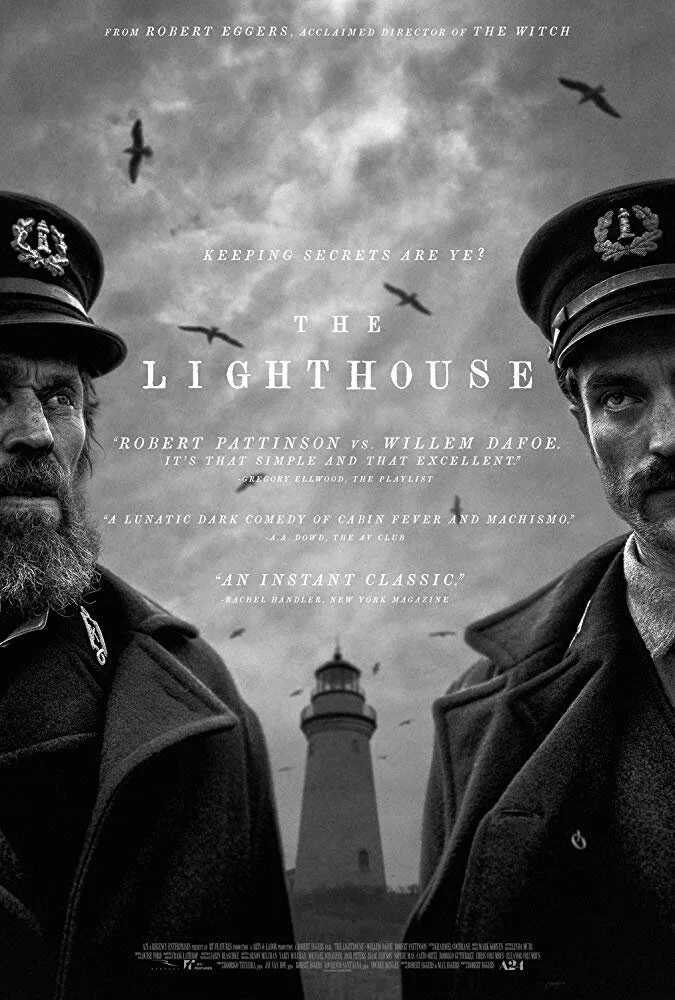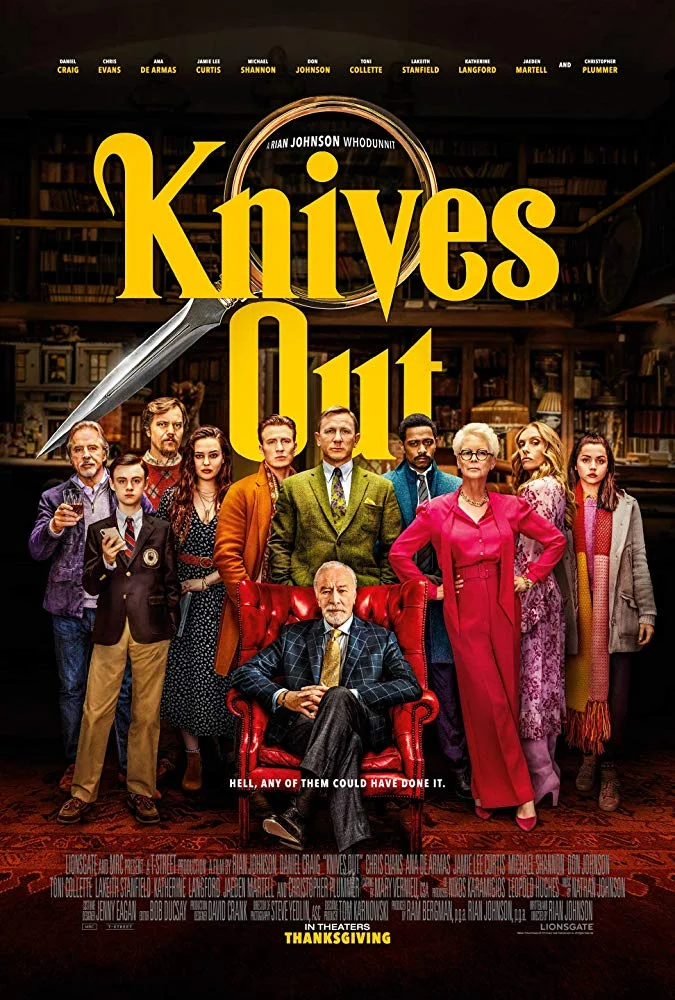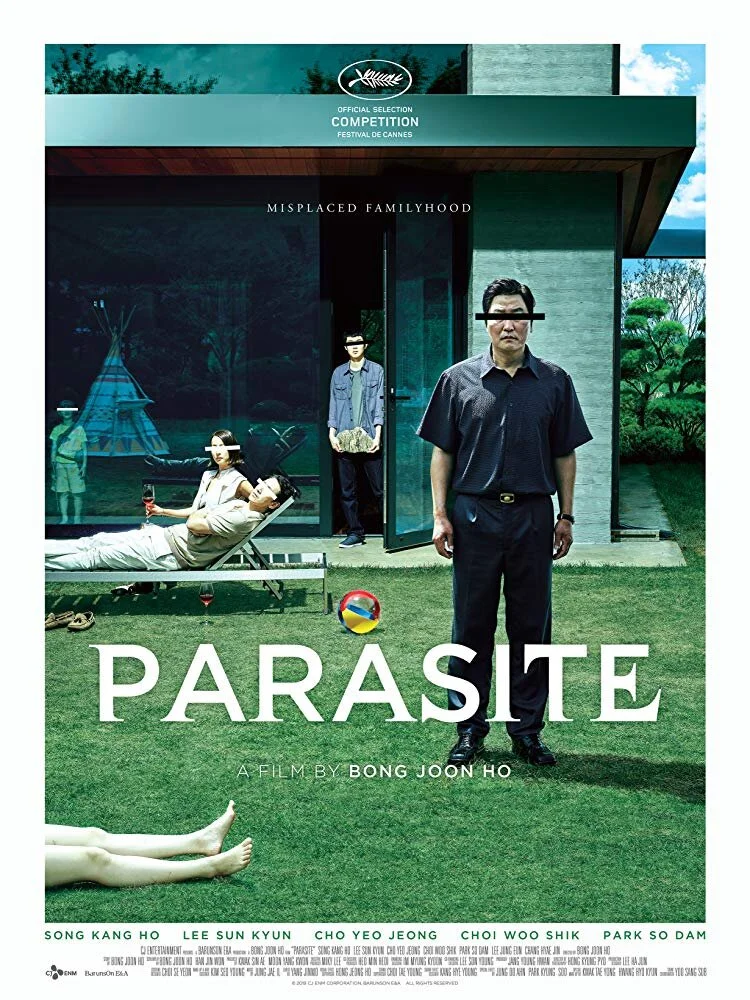The Lighthouse Is A Brilliant Dive Into Madness
Why write a review for a film that has been widely available for over a month? Because I like many of my friends, can't get this bat s**t crazy movie out of my head. Is it an allegory for addiction, classism, isolation? Yes, to all three. Writer/Director Robert Eggers does what the end of "The Witch" didn't do in the end. There's no clear answer given by the finale of the film; all we are left is questions. Questions such as, "what the hell did I just watch?" "The Lighthouse" isn't aimed at pleasing nor at making you comfortable. It is what it is. So what is it? Who knows, but it isn't crazy for the sake of being crazy.
Some filmmakers like to overindulge themselves with shock or madness, or mystery in their films. Filmmakers whom I respect are prominent in these trappings. The first Director who comes to my mind is David Lynch. I adore Mr. Lynch's work. You can even watch the video linked below, where I confess my love for "Twin Peaks: The Return."
Yet let's be honest. Lynch loves to indulge himself in contextually nonsensical scenes because he had a dream or thought about it at one point in time. What do his thoughts placed on the screen mean? As Mr. Lynch lights up his seventeenth cigarette for the day, he'd say, "it doesn't matter what it means." Why? Because even he doesn't know what in the world he filmed. That's not always the case with him, but there are various times where it is so. Frances For Coppola made "Youth Without Youth" in 2007. I saw the making of the film as an hour-long extended feature attached to a DVD of "Hearts of Darkness." What that documentary proved is that Coppola just slapped together a story because he had the money to do so. He became the very definition of being gratuitous in pretension.
Robert Eggers doesn't seem to be the type of Director who loses himself in pointless ideas. He extensively researches the periods of his films down to pinpoint accuracy. I've never seen a movie like "The Witch" that truly captured the essence as to why people were afraid of such an idea of Witches that would be laughable to the common man today. Yet the hysteria surrounding the fear people living during 1630 was tangible in Egger's tale. It was examined without judgment like "The Crucible" does but with understanding, making us feel as gullable and terrified as those living in 1630 New England. You could feel the absolute cold, smell the un-denatured breaths of its citizens and fathom why they would go mad. Madness is a prevalent theme that I'm supposing will be continued in Edgar's work, "The Lighthouse" is no exception.
The setting is the end of the 1800s, somewhere around late 1890. A former timberman is now taking a new life occupation as a wickie. He is Ephraim Winslow (Robert Pattinson). Mr. Winslow is assigned to work with his new commanding officer Thomas Wake (Willem Dafoe). From the get-go, Wake lavishes in gaslighting Winslow with his flatulence and incessant need to force Winslow to drink against his own will. The two men are stuck together for a month until their vessel is ready to pick Ephraim up. Able to maintain his temptation from spirits, Ephraim's sanity can only last for so long when living with a monstrously cruel man like Thomas Wake. Once Ephraim gives into his demons, hysteria takes hold of him. The film descends so far into lunacy we have no idea where the limit, if any, ends in Egger's picture. From furiously masturbating to mermaids to animal abuse, extreme homoerotic imagery, and grizzly violence, "The Lighthouse" holds no bounds.
The total isolation these characters feel is accentuated through D.P. Jarin Blaschke's usage of black and white 35mm film shot on a 1.19:1 aspect ratio corresponding to the tall narrow sets used in the movie. "The Lighthouse" feels like a vintage piece of silent cinema dubbed over for a modern American audience. There's no escaping the tight prisms of the aspect ratio, nor are we given color to suck us away from the time period we are in. We are trapped with these two men who will inevitably not end their stint on this island with ease. Egger's attention to detail is staggering. It's abundantly clear that this wasn't some pleasant shoot done on a soundstage in the middle of Los Angeles. A majority of the filming was in Leif Ericson Park in Cape Forchu, and Nova Scotia Canada. Conditions were miserably cold coupled with being incredibly long due to the specificity of the shots Eggers and Blaschke had to accomplish. Egger's meticulousness went to the extent where the crew built a real 70-foot operational lighthouse. The results are haunting images that won't leave your conscious anytime soon. Egger's pays homage to Stanley Kubrick's "The Shining" and David Lynch's "Eraserhead." Despite my earlier complaints about Mr. Lynch, when we can see the intent in his ludicrous work, he knocks it out of the park for future filmmakers to emulate. Most of the dialogue I could hardly understand as it's spoken through New Englander dialect consistent with the time it was spoken. Yet instead of this dialect deterring my interest, it drew me in making me want or understand the references and slang these men talk. Various literary influences are used as references in "The Lighthouse." Works from Edgar Allen Poe's "The Raven" and Herman Melville's "Moby-Dick" or "The Whale" will undoubtedly catch some audience's attention. A manuscript of a poem from Poe containing the same title as Egger's picture was the catalyst for the film's inspiration. For a closer in-depth look at the literary influences regarding "The Lighthouse," feel free to read my friend Robert Daniel's article below.
https://www.rogerebert.com/balder-and-dash/cthulu-paradise-lost-and-beyond-the-literary-influences-of-the-lighthouse
I am incredibly fond of a movie of this nature that isn't afraid to polarize its audience with such a shocking vision where real artistic intent can be seen in every frame. No time is wasted, nor is the audience spoken down to. Eggers invites a discussion to be had when the film ends so people can discover something a little different each time they revisit "The Lighthouse." The movie works on various levels as a dark comedy, a psychological thriller, an experimental film, and a horror flick. Many filmmakers attempting to make a picture this bombastic could fail, but Eggers takes that leap into the unknown landing firmly on both feet. It's truly an astounding work of extreme art that will be examined to death for years to come.
**** out of ****


